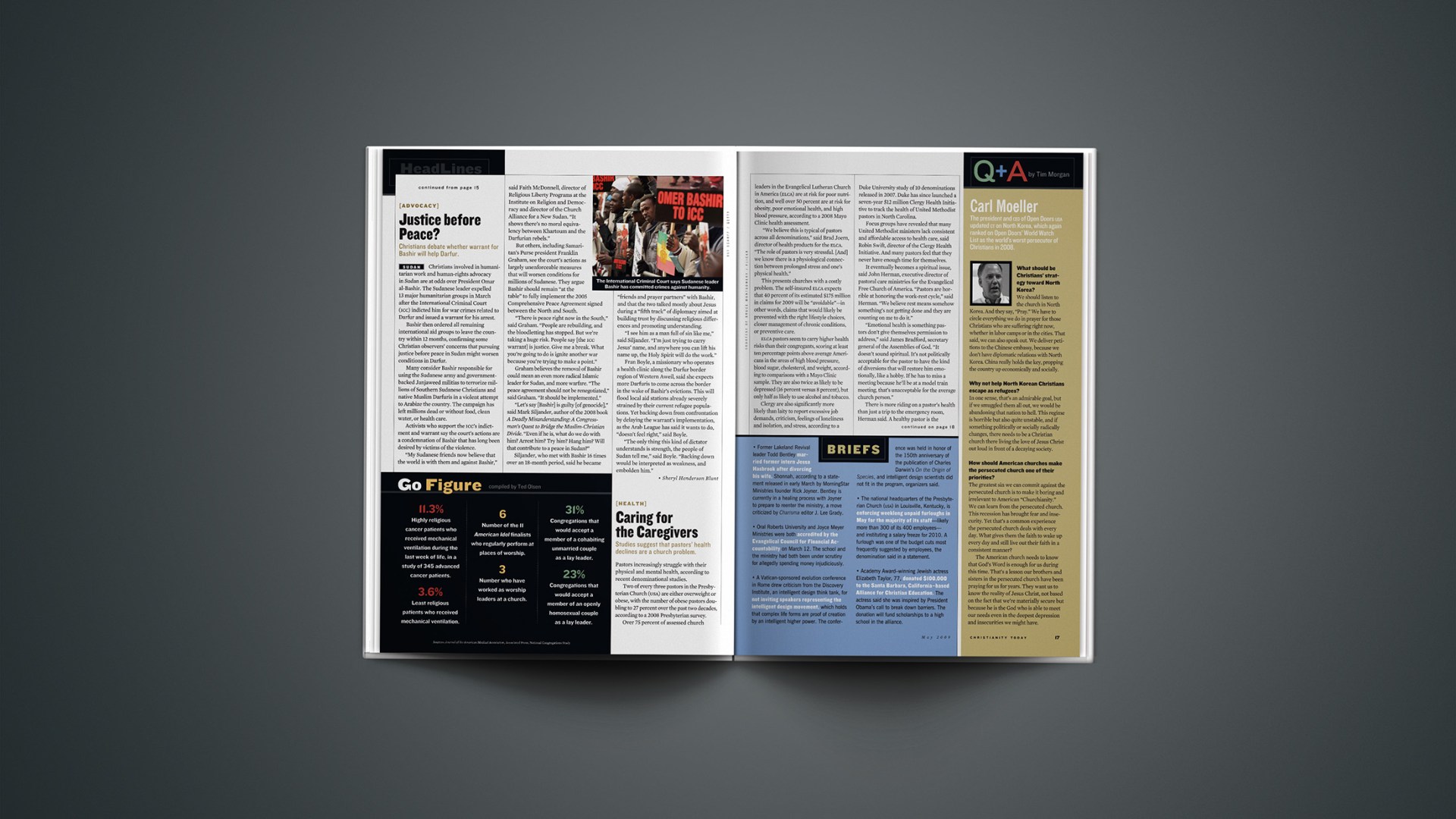Pastors increasingly struggle with their physical and mental health, according to recent denominational studies.
Two of every three pastors in the Presbyterian Church (USA) are either overweight or obese, with the number of obese pastors doubling to 27 percent over the past two decades, according to a 2008 Presbyterian survey.
Over 75 percent of assessed church leaders in the Evangelical Lutheran Church in America (ELCA) are at risk for poor nutrition, and well over 50 percent are at risk for obesity, poor emotional health, and high blood pressure, according to a 2008 Mayo Clinic health assessment.
“We believe this is typical of pastors across all denominations,” said Brad Joern, director of health products for the ELCA. “The role of pastors is very stressful. [And] we know there is a physiological connection between prolonged stress and one’s physical health.”
This presents churches with a costly problem. The self-insured ELCA expects that 40 percent of its estimated $175 million in claims for 2009 will be “avoidable”—in other words, claims that would likely be prevented with the right lifestyle choices, closer management of chronic conditions, or preventive care.
ELCA pastors seem to carry higher health risks than their congregants, scoring at least ten percentage points above average Americans in the areas of high blood pressure, blood sugar, cholesterol, and weight, according to comparisons with a Mayo Clinic sample. They are also twice as likely to be depressed (16 percent versus 8 percent), but only half as likely to use alcohol and tobacco.
Clergy are also significantly more likely than laity to report excessive job demands, criticism, feelings of loneliness and isolation, and stress, according to a Duke University study of 10 denominations released in 2007. Duke has since launched a seven-year $12 million Clergy Health Initiative to track the health of United Methodist pastors in North Carolina.
Focus groups have revealed that many United Methodist ministers lack consistent and affordable access to health care, said Robin Swift, director of the Clergy Health Initiative. And many pastors feel that they never have enough time for themselves.
It eventually becomes a spiritual issue, said John Herman, executive director of pastoral care ministries for the Evangelical Free Church of America. “Pastors are horrible at honoring the work-rest cycle,” said Herman. “We believe rest means somehow something’s not getting done and they are counting on me to do it.”
“Emotional health is something pastors don’t give themselves permission to address,” said James Bradford, secretary general of the Assemblies of God. “It doesn’t sound spiritual. It’s not politically acceptable for the pastor to have the kind of diversions that will restore him emotionally, like a hobby. If he has to miss a meeting because he’ll be at a model train meeting, that’s unacceptable for the average church person.”
There is more riding on a pastor’s health than just a trip to the emergency room, Herman said. A healthy pastor is the key human resource for building healthy churches, he said.
“I do think care of the CEO, in crass corporate language, is one of the responsibilities of the board,” said Bradford. “It’s rarely done well. We just expect pastors to be healthy, morally pure. I think a board needs to take responsibility not just for the church budget and facilities, but also consciously [for] the care of that pastor.”
One essential culture shift is coming to understand health as a practice of the whole community, said Keith Meador, co-director for Duke’s Center for Spirituality, Theology, and Health. Blood pressure checks at the church aren’t bad, but Christians should guard against an individualistic notion of personal health that can be manipulated using spirituality.
“If we rightly understand a Christocentric community that gives thanks to God for the bread and wine that connotes the fullness of life and death and resurrection,” said Meador, “then we’re going to have a life where we care for one another.”
Copyright © 2009 Christianity Today. Click for reprint information.
Related Elsewhere:
Christianity Today has more articles on church life and science & health.










